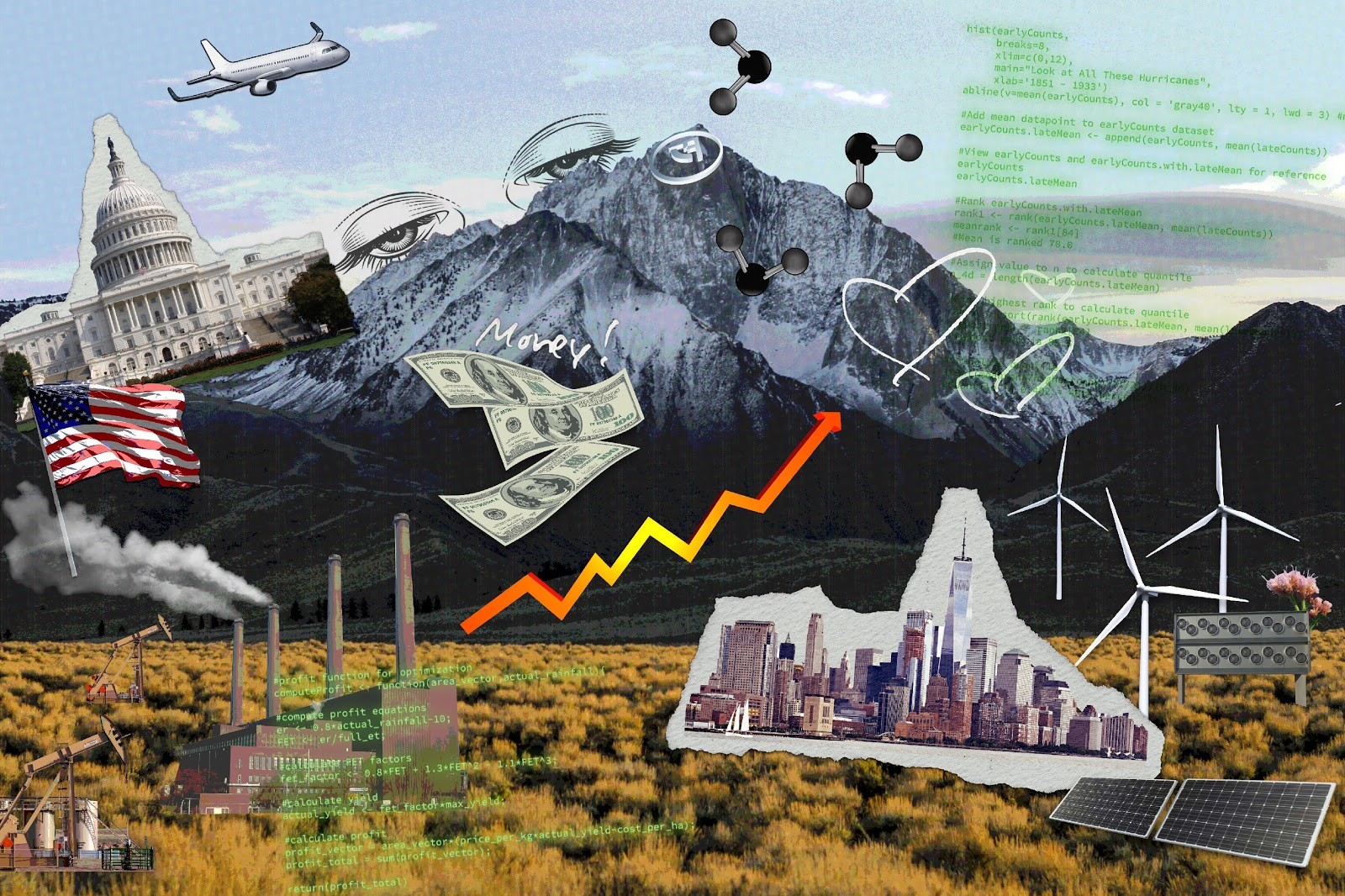The Code of Love, Life, and Carbon
Deleting fossil fuel subsidies from our system.

C+S 2021 students are blogging about topics that interest them for Applications in Climate and Society, a core spring class.
We have an unhealthy attachment to fossil fuels.
In the leadership course I took this spring, I learned about the concept of lines of “cognitive code” being written in our brains during childhood. These lines of code impact every facet of our lives, especially when it comes to love and relationships.
When faced with a situation, this faulty code kicks in automatically and hijacks our thinking, preventing us from responding appropriately and dictating our actions before we have a chance to react consciously.
This code controls how the entire system runs—but it can also be rewritten.
We must keep the systemic nature and impact of faulty code in mind when it comes to fighting climate change. Our institutions, like our brains, are essentially computers. And there’s bad code in them that’s preventing us from addressing the immediate and all-encompassing threat of climate change.
Fossil fuel subsidies are one of the most destructive lines of code. This outdated code was originally written to lower prices for consumers and decrease the financial risk associated with fossil fuel extraction so that private companies would be incentivized to provide us with more of those sweet hydrocarbons.
This isn’t just some metaphorical code. It is, quite literally, written into tax laws and is hard to dismantle.
Globally, fossil fuel companies receive $5.2 trillion per year in subsidies. That’s monumentally dumb. The U.S. alone provides these companies with at least $20 billion annually. These subsidies encourage inefficient energy use. They also artificially lower the cost of burning fossil fuels by neglecting negative environmental and societal externalities.
This is not a free market by any means. These artificially low prices give fossil fuels an unfair advantage over alternatives.
It is true that we “benefit” from the fossil fuel economy in the short term. Ending subsidies would fundamentally change this calculus and provide a more accurate assessment of the true societal costs associated with extracting and burning fossil fuels.
Our toxic relationship with fossil fuels is not a random occurrence, it is the result of this deeply embedded faulty code. If not changed, it will continue on a loop and run forever—or until the system breaks down.
We can and must write better code.
So, what does “good code” look like? Let me guide your attention to my area of expertise: carbontech. Specifically, let’s look at the recently finalized 45Q tax credits.
Rather than encouraging the use of fossil fuels, this new line of code incentivizes capturing and sequestering carbon dioxide. Tax credits can be claimed of $50 per ton of carbon dioxide captured and geologically sequestered and of $35 per ton “for any other purpose for which a commercial market exists.
However, adding lines of better code alone won’t fix this broken system. Fossil fuel subsidies are a particularly egregious bit of code that, once removed, would unleash a new wave of innovation, decrease global carbon dioxide emissions, and improve society at large.
Ending these subsidies would free up vast quantities of money that could instead be invested in R&D, fighting climate change, and funding improvements in healthcare, education, and infrastructure.
We remain largely unaware as to how faulty code impacts us but are subject to its negative outcomes. We’ve gotten used to them as facts of life and tend not to question our programmed actions.
Let’s not be held hostage to such outdated ways of thinking. Let's rewrite the code that controls our behavior.
As rear admiral Grace Hopper commented, “The most dangerous phrase in the language is, ‘we’ve always done it this way.’”
